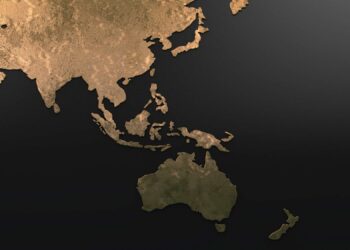With interest rates now seen as being “firmly on hold” in Australia and the US, the focus of the market is shifting to when central banks will begin to cut, according to economists at Westpac.
This is after the Reserve Bank of Australia (RBA) left rates on hold at 4.10 per cent for the third consecutive time. Meanwhile, the US Federal Reserve, which hiked at its last meeting in July, is widely tipped to leave rates unchanged at its next policy meeting next week.
“The peak in the interest rate tightening cycle now looks to be in, policy firmly on hold in Australia and the US and peaks imminent elsewhere,” Westpac’s economists said.
“That should usher in a period of relative calm policy-wise, albeit with the full impact of tightening still flowing through to the real economy. For markets, attention is turning to the timing of and extent of prospective easing. This will naturally depend on, firstly, inflation developments, and beyond that, the growth profiles and degree of slack that emerges.”
On inflation, the economists said recent progress has been “good”, with headline measures heading towards target across most economies. This includes in Australia, where inflation eased to 4.9 per cent in the 12 months to July, down from 5.4 per cent a month earlier.
According to the economists, growth figures have also been “a little more positive than expected”, particularly in the US, where the risk of a recession is now viewed as remote.
“While returning inflation to target without damaging economic downturns would be a miraculous result given the scale of the inflation challenge and the degree of monetary tightening, it poses some challenges for central banks going forward,” they noted.
“In particular, firmer-than-expected growth and tighter-than-expected labour markets will make it more difficult to achieve the ‘last leg’ of a sustained return to low inflation. It also means there will be both less scope and less requirement for policy easing.
“Reflecting these developments, we have significantly pared back our forecasts for the federal funds rate over the last month, with a much slower pace of policy easing now expected in 2024. Whether these same dynamics play out in Australia remains to be seen.”
Westpac currently expects that interest rates will remain on hold in Australia until August next year, when the big four bank has forecast that the RBA will announce its first rate cut.
The bank’s economists said the latest national accounts had confirmed that a sharp slowdown in the Australian economy is underway, with GDP growing by 0.4 per cent in the June quarter and household consumption up just 0.1 per cent.
Reflecting the rising cost of living, an increasing tax burden, and higher mortgage rates, Westpac has forecast household consumption growth of 0.3 per cent during both the September and December quarters and only 0.8 per cent in the year to June 2024.
“The RBA’s recognition of this insipid growth over the year to June 2024 is one factor supporting our call that the first rate cut will come at the August meeting,” Westpac chief economist Bill Evans said.
Meanwhile, Westpac has revised its outlook for the Fed’s easing cycle. While this is still expected to commence next March, the bank has predicted that the Fed will cut by 100 basis points (bps) rather than 175 bps on the back of its upgraded forecasts for growth in the US.
“We have not changed our forecast that the RBA will be cutting the cash rate by 50 bps in 2024, meaning that the interest rate differential between US and Australia will favour the US by an additional 75 bps relative to our previous forecast,” Mr Evans said.
The RBA’s next interest rate decision, which is due to be announced on 3 October, will be the first to be overseen by new governor Michele Bullock following the departure of Philip Lowe.







